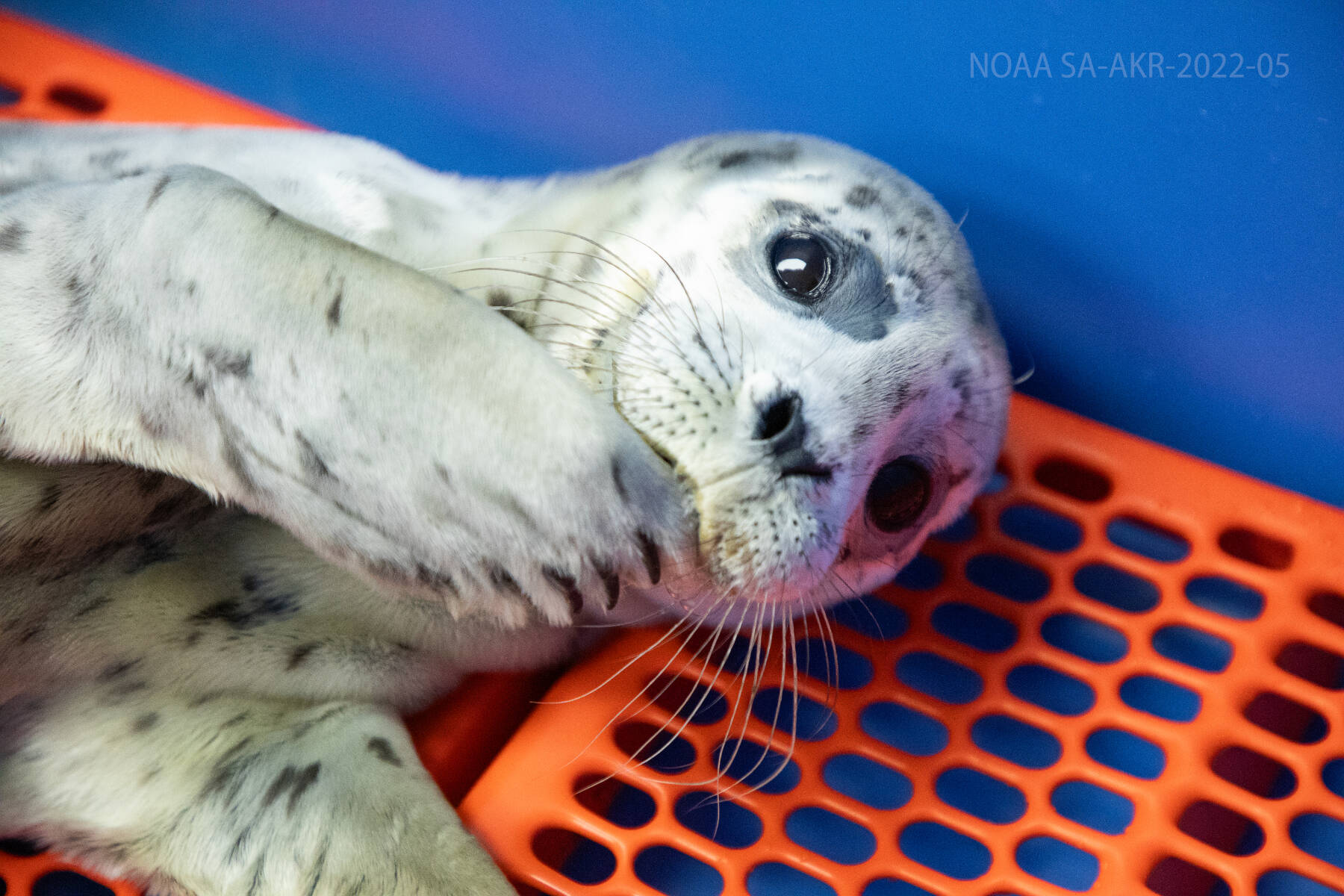As harbor seal pupping season continues, wildlife responders are reminding the public of the dangerous effects human interaction can have on seal pups, and urging the public to share coastal areas responsibly.
“One of the most significant threats to these pups is disturbance from people and pets,” the Alaska SeaLife Center said in a Wednesday release. “If a mother seal is interrupted or feels unsafe, especially in high-traffic areas, she may abandon her pup. Once abandoned, a pup’s chances of survival drop sharply, particularly during the early days when it relies entirely on its mother’s milk for nutrition, immune support, and growth.”
The Seward-based center has admitted five harbor seal pups to its Wildlife Response Program since June 6. Two pups remain in poor health, two are in critical condition, and one has died due to an infection. The five cases follow the recent admissions of an orphaned northern sea otter pup and four harbor seal patients, who all required intensive rehabilitation and veterinary care.
Pups were found in Nikiski, Pilot Point, Sitka, Homer and Egegik and transported to the SeaLife Center in Seward.
In Nikiski, a female harbor seal pup, spotted on a beach June 6, appeared malnourished and dehydrated, likely from maternal separation. SeaLife Center volunteers in Kenai transported the pup to Seward for care. The center said she has been stable for the past few days and continues showing slow improvement.
On June 10, a male harbor seal pup was admitted from the remote community of Pilot Point. The pup, which was in an increasingly fragile condition, was taken on a two-flight journey to Anchorage. In a “critical window where every minute mattered,” the center said, Kenai Aviation volunteered to fly the pup directly to Seward on a third and final flight. Once in Seward, the pup’s bloodwork confirmed a severe internal infection, and SeaLife Center staff moved him into critical care mode when his temperature spiked the next morning. Despite hours of intensive treatment, the pup died of an infection.
The Kenai Aviation team on June 11 helped transport from Anchorage another harbor seal pup, who was found extremely malnourished and dehydrated in Sitka. She remains in critical condition.
On the heels of the Sitka rescue, the SeaLife Center team was also monitoring a female seal pup in Homer, reported at an unspecified “popular fishing area.” An adult seal was observed briefly returning to the pup, but as she remained in the high-traffic area and more interactions between her and people were documented, the mother stopped returning. The abandonment of the pup and her deteriorating health caused concern, and she was transported to the SeaLife Center the night of June 12.
A few days later, on June 17, a male seal pup near Egegik was reported alone. Photos showed a pup in lanugo with an umbilicus, indicating this was a premature seal. The next day, he was still in the area, and there had been reports of people interacting with him. Due to his condition and location, this animal was also authorized for recovery and rehabilitation. He is currently under critical care due to his delicate condition.
The SeaLife Center said it’s critical to give seals space and share coastal areas responsibly. Remember to never approach, touch, or attempt to move a seal pup. Keep children and pets well away from haul-out sites and known pupping areas. Approaching or disturbing a marine mammal can cause lasting harm, pose safety risks to people, and may violate the Marine Mammal Protection Act. Responsible viewing helps ensure that young animals have the best possible chance to grow and survive in the wild.
Report stranded and injured marine mammals statewide via the 24-hour Stranded Marine Animal Hotline at 1-888-774-SEAL (7325). The SeaLife Center encourages all Alaskans (and visitors) to save the number in their phone contacts and to always call before approaching any stranded or injured wildlife.

